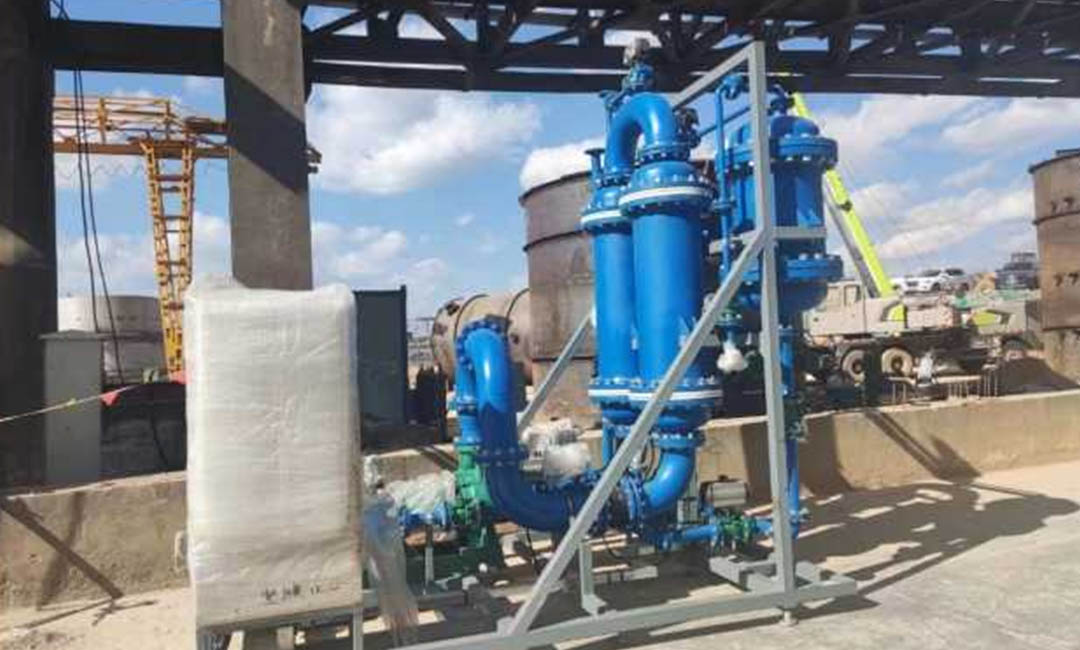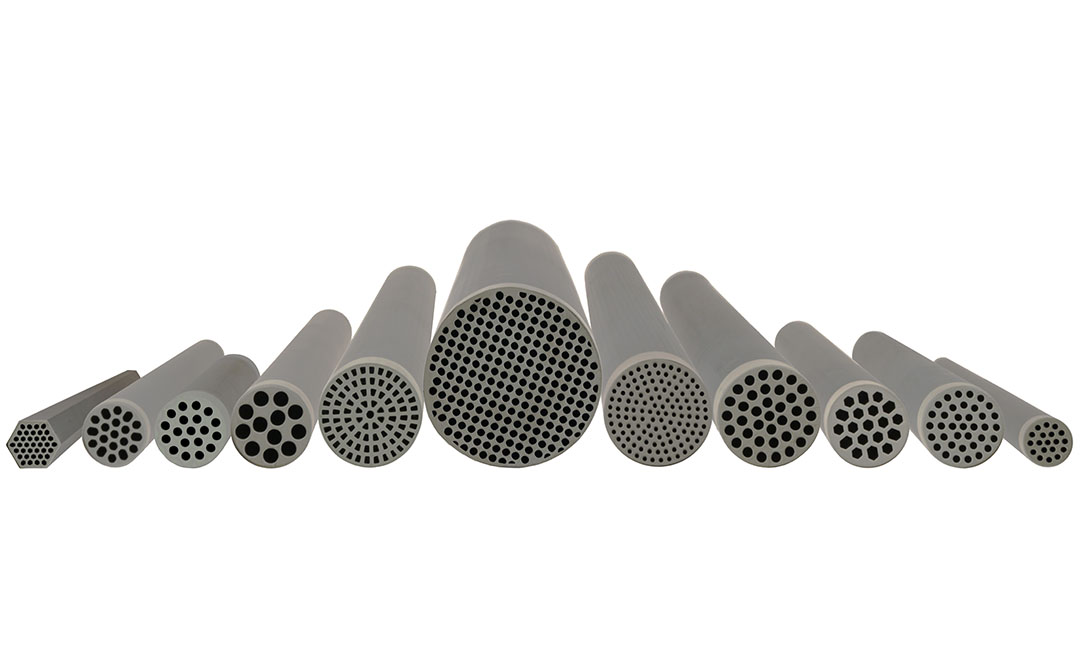Benefits of Using Inorganic Silicon Carbide Membranes in Industrial Filtration Processes
Inorganic silicon carbide membranes have emerged as a cutting-edge technology in the field of industrial filtration processes. These membranes offer a range of benefits that make them highly desirable for use in various industries. From their exceptional durability to their high efficiency, inorganic silicon carbide membranes are revolutionizing the way filtration is done in industrial settings.
One of the key benefits of using inorganic silicon carbide membranes is their superior durability. These membranes are made from a material that is known for its high strength and resistance to corrosion. This means that they can withstand harsh operating conditions and last much longer than traditional filtration materials. Inorganic silicon carbide membranes are also highly resistant to fouling, which can extend their lifespan even further.
In addition to their durability, inorganic silicon carbide membranes offer excellent filtration efficiency. These membranes have a unique pore structure that allows for precise control over the size of particles that can pass through. This means that they can effectively remove contaminants of various sizes, from large particles to microscopic impurities. As a result, inorganic silicon carbide membranes can provide a high level of filtration quality, ensuring that the final product meets the required standards.
Another benefit of using inorganic silicon carbide membranes is their low energy consumption. These membranes have a high permeability, which means that they can achieve high filtration rates with minimal energy input. This can result in significant cost savings for industrial operations, as less energy is required to maintain the filtration process. Inorganic silicon carbide membranes are also easy to clean, further reducing energy consumption and maintenance costs.
Furthermore, inorganic silicon carbide membranes are environmentally friendly. These membranes are made from a non-toxic material that does not leach harmful chemicals into the environment. This makes them a sustainable choice for industrial filtration processes, as they do not contribute to pollution or harm the ecosystem. Inorganic silicon carbide membranes can also be recycled, further reducing their environmental impact.
Inorganic silicon carbide membranes are versatile and can be used in a wide range of industrial applications. From water treatment to chemical processing, these membranes can effectively filter out impurities and contaminants, ensuring the purity of the final product. Inorganic silicon carbide membranes can also be customized to meet specific filtration requirements, making them suitable for a variety of industries.
In conclusion, inorganic silicon carbide membranes offer a range of benefits that make them an ideal choice for industrial filtration processes. From their exceptional durability to their high efficiency and low energy consumption, these membranes are revolutionizing the way filtration is done in industrial settings. With their environmentally friendly properties and versatility, inorganic silicon carbide membranes are paving the way for advanced filtration solutions in various industries.
Comparison of Inorganic Silicon Carbide Membranes with Other Advanced Filtration Technologies
Inorganic silicon carbide membranes have emerged as a cutting-edge filtration technology that offers numerous advantages over traditional filtration methods. These membranes are made from a combination of silicon and carbon, resulting in a highly durable and efficient filtration material. In comparison to other advanced filtration technologies, such as ceramic membranes and polymeric membranes, inorganic silicon carbide membranes stand out for their superior performance and longevity.
One of the key advantages of inorganic silicon carbide membranes is their exceptional chemical and thermal stability. These membranes can withstand a wide range of harsh chemicals and high temperatures, making them ideal for use in industries where traditional filtration materials would quickly degrade. In contrast, ceramic membranes are prone to cracking and degradation when exposed to certain chemicals, while polymeric membranes may not be able to withstand high temperatures without losing their filtration efficiency.

Another important factor to consider when comparing filtration technologies is the pore size of the membranes. Inorganic silicon carbide membranes have a uniform pore size distribution, which allows for precise control over the filtration process. This uniformity ensures that particles of a specific size are effectively removed from the fluid, resulting in a higher quality filtrate. In comparison, ceramic membranes may have uneven pore sizes, leading to inconsistent filtration performance, while polymeric membranes may suffer from pore blockages over time.
In terms of filtration efficiency, inorganic silicon carbide membranes offer a high flux rate and low fouling propensity. The smooth surface of these membranes prevents particles from adhering to the membrane surface, reducing the likelihood of fouling and maintaining a high filtration rate. Ceramic membranes, on the other hand, may be more prone to fouling due to their rough surface texture, while polymeric membranes may require frequent cleaning to maintain their filtration efficiency.
Durability is another important consideration when evaluating filtration technologies. Inorganic silicon carbide membranes have a long lifespan and can withstand frequent cleaning and sterilization cycles without losing their filtration performance. This durability makes them a cost-effective option for industries that require reliable and long-lasting filtration solutions. In comparison, ceramic membranes may be more fragile and prone to breakage, while polymeric membranes may degrade over time, requiring frequent replacement.
Overall, inorganic silicon carbide membranes offer a combination of superior performance, durability, and efficiency that sets them apart from other advanced filtration technologies. Their chemical and thermal stability, uniform pore size distribution, high flux rate, low fouling propensity, and long lifespan make them an ideal choice for a wide range of industrial applications. As industries continue to demand more efficient and reliable filtration solutions, inorganic silicon carbide membranes are poised to become the filtration technology of choice for the future.
Case Studies Highlighting Successful Implementation of Inorganic Silicon Carbide Membranes in Various Industries
Inorganic Silicon Carbide (SiC) membranes have emerged as a cutting-edge technology in the field of filtration, offering superior performance and durability compared to traditional filtration methods. These membranes are made from a combination of silicon and carbon, resulting in a material that is highly resistant to harsh chemicals, extreme temperatures, and mechanical stress. As a result, inorganic SiC membranes have found widespread applications in various industries, providing advanced filtration solutions that improve efficiency and reduce operating costs.
One industry that has benefited greatly from the implementation of inorganic SiC membranes is the oil and gas sector. In this industry, the need for efficient filtration systems is paramount, as the extraction and processing of oil and gas produce large volumes of wastewater and byproducts that must be treated before disposal. Inorganic SiC membranes have proven to be highly effective in removing contaminants such as oil, grease, and heavy metals from wastewater, ensuring compliance with environmental regulations and reducing the environmental impact of oil and gas operations.
Another industry that has successfully implemented inorganic SiC membranes is the pharmaceutical industry. In this highly regulated sector, the need for reliable and efficient filtration systems is critical to ensure the safety and efficacy of pharmaceutical products. Inorganic SiC membranes have been used to filter out impurities and particles from pharmaceutical solutions, ensuring that the final product meets the highest quality standards. Additionally, the durability and longevity of inorganic SiC membranes make them a cost-effective solution for pharmaceutical companies looking to improve their filtration processes.

The food and beverage industry is another sector that has embraced the use of inorganic SiC membranes for advanced filtration. In this industry, maintaining the quality and safety of food and beverage products is of utmost importance, and filtration plays a crucial role in achieving this goal. Inorganic SiC membranes have been used to remove contaminants such as bacteria, viruses, and particles from food and beverage products, ensuring that they meet regulatory standards and are safe for consumption. The high chemical resistance of inorganic SiC membranes also makes them ideal for filtering aggressive substances commonly found in food and beverage processing.
In the mining industry, inorganic SiC membranes have been successfully implemented to improve the efficiency of water treatment processes. Mining operations generate large volumes of wastewater that contain a variety of contaminants, including heavy metals and suspended solids. Inorganic SiC membranes have been used to effectively remove these contaminants from wastewater, allowing mining companies to recycle water for reuse in their operations and reduce their environmental footprint. The robust nature of inorganic SiC membranes also makes them well-suited for the harsh conditions typically found in mining operations.
Overall, the successful implementation of inorganic SiC membranes in various industries highlights the versatility and effectiveness of this advanced filtration technology. From oil and gas to pharmaceuticals, food and beverage, and mining, inorganic SiC membranes have proven to be a reliable and cost-effective solution for improving filtration processes and meeting regulatory requirements. As industries continue to seek innovative ways to enhance their operations, inorganic SiC membranes are poised to play a key role in advancing filtration technology and driving sustainable practices across a wide range of sectors.

